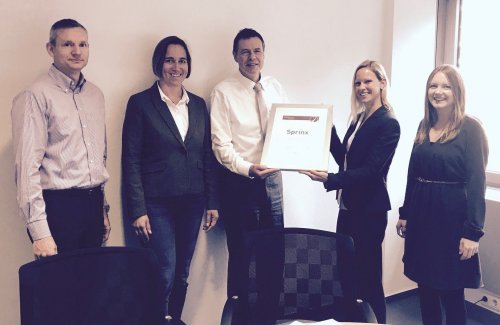
Municipalities lack knowledge to lower energy consumption
23-08-2010 | Municipalities do not focus enough attention on lowering energy consumption at enterprises. Legal directives are not being complied with, according to the VROM (Ministry of Housing, Spatial Planning and the Environment) inspectorate.
Municipal officials have insufficient knowledge concerning the yield of measures to lower energy consumption. Because of this they are unable to assess whether an investment can be recovered within 5 years.
Big energy consumers are legally obligated to invest in measures that are recovered within 5 years. Since the national government does not make any clear information available on the potential return of possible measures, municipalities are incapable of verifying this.
In its Energie in vergunningverlening en handhaving (Energy in granting permits and enforcement) report, the VROM inspectorate indicates that energy consumption in business could be substantially lowered if all legal directives were to be complied with. Companies and institutions under municipal supervision are responsible for about 10 to 20 percent of the total Dutch energy consumption. This involves industrial companies, wholesalers, shops, office buildings and care institutions. If municipalities were to do their work properly, this group could lower its energy consumption by ‘about 10 to 30 percent’, according to the VROM inspectorate.
The VROM inspectorate states that a series of causes for the shortcomings detected can be identified. Municipal environmental departments focus their attention much more on air, noise and the soil. Their policy in these areas has ‘more local impact’ and is easier to enforce since it has been ‘elaborated more concretely’ than the energy savings policy. The fact that municipalities are under the impression that the national government also gives low priority to limiting energy consumption at companies and institutions also plays a role in this.
Municipalities must work with a ‘very antiquated’ circular dating from 1999, which in practice gives them little to hold on to. For example, it may be the case that municipalities force companies to be subjected to an energy-savings assessment without there ever being any concrete follow-up.
The VROM inspectorate claims that there are big differences between municipalities as well as within them. One company in a municipality may be forced to take measures, while another company in the same municipality completely eludes municipal observation. It also happens that a company or institution is inspected one year on its energy consumption, and the next year it is not. At the same time, municipalities do not know the energy consumption of companies subject to mandatory reporting, as the internet module that the companies must fill out does not mention anything in this regard.
Covenants
Various branches and companies within them have signed covenants in which they assume the obligation to lower energy consumption by an average of 2 percent annually. In 2007, the national government made the agreement with the association of Netherlands municipalities VNG that companies that had not signed such an agreement would be given extra attention when they were granted a permit and with regard to supervision and enforcement.
In practice, this will come to little or nothing. Municipal officials are often unfamiliar with the agreements that VNG and the national government set down in their so-called 2007-2010 Climate Agreement. Moreover, only a few municipalities turn out to have a current and complete list of participants in the covenant agreements at their disposal.
The VROM inspectorate is presenting a number of recommendations for both municipalities and the national government to improve the current situation. Municipalities should include their legally required environmental tasks in their work processes for enforcement and supervision. Overviews of the energy consumption at companies must be complete and up-to-date.
In addition, the VROM inspectorate finds that the national government must supply municipalities with better information. Among other things, this involves answering the question of what measures are cost-effective in what sector. The above-mentioned internet module must be adapted and companies must be actively informed. If necessary, supervisors must have additional training.
The VROM inspectorate emphasises that its assessment only entails a random test, from which no statistical conclusions may be derived. Permit granting, enforcement and supervision were examined in thirty municipalities. When lowering energy consumption is concerned, the VROM inspectorate finds that municipalities that contract out tasks to an environmental service perform no better than municipalities that work on their own.
For the report, go to: www.vrominspectie.nl.
By Boudewijn Warbroek

More news
-

Sprinx becomes an official Cheetah-partner of Progros!
06-10-2017 | This week, Sprinx launched a new partnership with supply chain management company Progros for the delivery of Cheetah Energy Control. > Read more
-

26 Maritim Hotels switched to Cheetah: energy costs reduced by up to 50%
22-06-2017 | Some air conditioners have a similar principle: the ventilation is controlled automatically and based on demand. The Cheetah system from Sprinx Deutschland GmbH is comparable. In large kitchens the ventilation runs all day and night, even when there is no cooking activity. > Read more
-

Restaurant De Beren in Barendrecht saves 59% thanks to kitchen hood optimization
05-03-2017 | Restaurant De Beren in Barendrecht (The Netherlands) is happy with the significant energy savings it has been able to realise thanks to Cheetah Energy Control: “It was especially important for us that the system wouldn’t change the working comfort of our kitchen staff. > Read more



